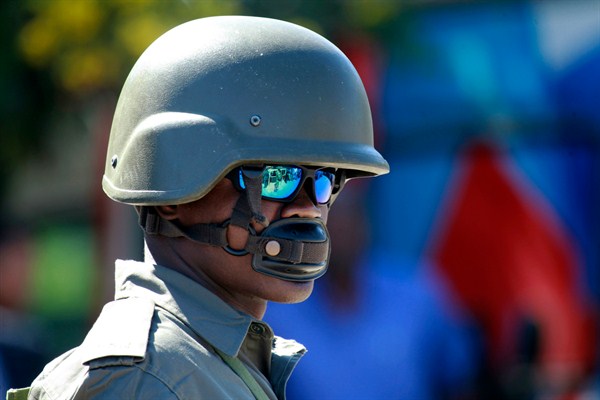In early October, a court in Mozambique began trying 189 people accused of carrying out a spate of grisly attacks, some involving beheadings, in Cabo Delgado province, in the north of the country. The trial, the first of its kind, represents a rare opportunity to gather information on a security threat that continues to confound experts and government officials alike.
Though the violence in Cabo Delgado, which has killed more than 100 people, first began getting serious attention more than a year ago, details about what’s driving it remain elusive. It has been attributed to a group commonly referred to as al-Sunna wa’a Jama’a, a name that roughly translates to “adherents of the prophetic tradition.” But Mozambique, which is 18 percent Muslim, has in recent years been spared the type of Islamist insurgency that has afflicted Somalia and multiple countries in the Sahel, and no convincing theory has emerged to explain why that might change now.
Moreover, the limited information that has surfaced about the assailants in Cabo Delgado, including government statements, seems almost deliberately crafted to invite various, competing descriptions of their origins and motivations. Residents of the province refer to al-Sunna fighters as “al-Shabab,” though there is no known connection to the Somali terrorist group of the same name. President Filipe Nyusi, meanwhile, has described the militants as “youths” who have “been turned into instruments” by unidentified “people who don’t want the development of this country and this province.” Further muddying the waters, multiple media outlets have compared al-Sunna to Nigeria’s Boko Haram, which in itself is a complex enough movement to encompass different kinds of fighters, from those motivated primarily by extremist ideology to those driven by anger at the government and a lack of economic opportunities.

